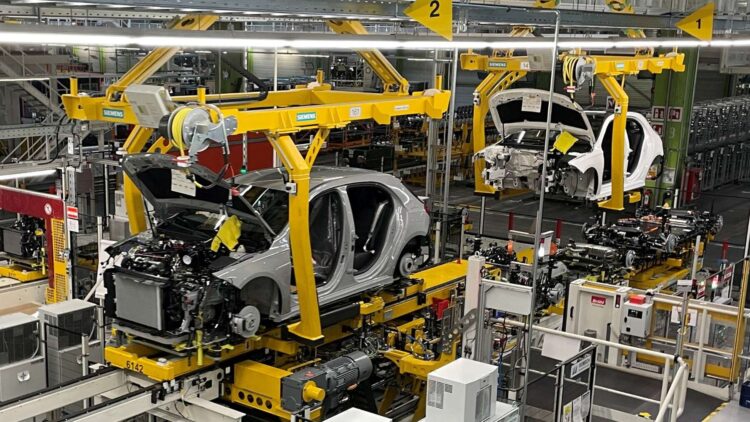The trade standoff between U.S. President Donald Trump and the European Union has been paused, but it’s far from over. The European automotive sector, specifically, has suffered from a new high tariff and is facing uncertainties that continue to put pressure on automakers. Now, it’s necessary to immediately seek strategies to contain losses and preserve increasingly pressured profit margins.
How to avoid billion-dollar losses in the European automotive sector?
Europe’s carmakers, already battling stiff competition from Asia and a costly transition to electric cars, were dealing with another dose of reality on Monday – tariffs imposed by U.S. President Donald Trump. A deal on Sunday to avert an all-out trade war between the European Union and the United States brought some relief, but the agreed lower tariff of 15% (versus 27.5%) is still set to cost carmakers billions and leaves much uncertain.
Industry welcomed the planning security brought by the deal, but warned that companies were still lacking detail and called for further measures to reduce trade barriers that threaten their export-focused businesses. Germany’s VDA association for the sector said the 15% baseline tariff would cost the German automotive industry billions annually. The United States, the world’s biggest importer of German cars, had slapped a 25% punitive rate on car imports from Europe in April, prompting companies to slash their outlooks and look at ways – from investments to production shifts – to appease President Trump in the trade war.
While the 15% tariff agreed between Trump and European Commission President Ursula von der Leyen on Sunday is an improvement, it is six times as much as the 2.5% enjoyed by exporters before Trump’s trade war. European auto stocks. SXAP rose briefly on Monday, but the initial optimism quickly faded, with the sector down 1.2% at 1325 GMT, led by Volkswagen VOWG.DE, BMW BMWG.DE, Mercedes MBGn.DE, and Stellantis STLAM.MI.
“We welcome the agreement between the EU and the U.S. in the tariff dispute and the planning security that comes with it for the European automotive industry,” Volkswagen said in a statement to Reuters.
Automakers push for more dialogue and bilateral exemptions
German manufacturers, specifically, whose business models depend heavily on exports to the US, are the most impacted. Luxury brands like Audi and Porsche are directly affected by the additional costs imposed by the new tax, as they lack sufficient production facilities in the country. To contain losses, companies are cutting projections, putting jobs at risk.
Europe’s largest carmaker said last week it was hoping for a separate deal of its own on top of a renegotiated U.S.-EU trade framework. Mercedes-Benz called for “constructive dialogue” between Brussels and Washington as they work to implement the deal, parts of which require further negotiation. Tariffs cost Volkswagen some $1.5 billion in the first half of 2025, prompting the company to lower its sales and profitability guidance for the full year.
Luxury brands Porsche P911_p.DE and Audi, which also cut their guidance on Monday, are particularly exposed to U.S. tariffs with no local production. Part of von der Leyen’s deal with Trump also included a promise $600 billion in investment from European companies in the U.S.
The lack of predictability in trade relations has frustrated companies and led manufacturers to call for a more direct approach between governments. It’s still unclear whether European investment in the US will translate into tariff relief, and for the industry, it’s urgent that this investment translate into concrete benefits, such as tax flexibility and greater regulatory stability.
Ongoing negotiations require quick responses
It’s a fact that the European automotive sector can no longer operate as it did before. Although the new agreement has avoided an all-out tariff war, the current situation demands intense political coordination and profound strategic adjustments. The terrain is still unstable, and the industry’s future depends on the ability to adapt to a changing global market.

